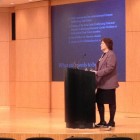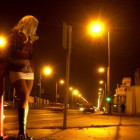
Emerging State Safe Harbor Responses to Sex Trafficking and Prostitution of Minors
|
We sat in court and Raquel doodled butterflies and rainbows and wrote a poem about feeling lost. I scribbled down our next court date and told her I would meet her in the lock-up when the court officers led her away. She was my first young client charged with prostitution. Sitting beside me with long fake nails and extensions in her hair, she looked older than her age of 14, but not much. The idea that our justice system charges young girls like Raquel with prostitution, and sometimes locks them up — she spent one year in detention — shocked my friends and relatives who were frequently surprised about the realities of the juvenile justice system when I shared moments from my work.



